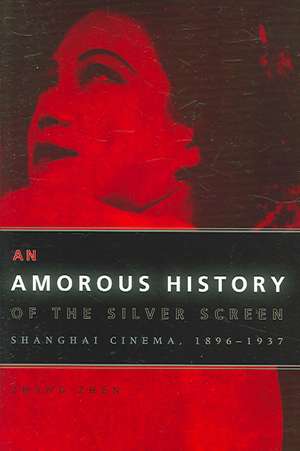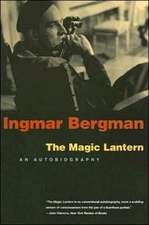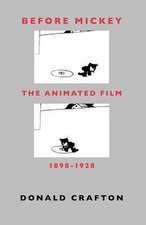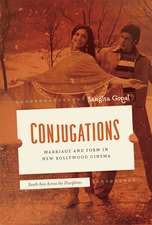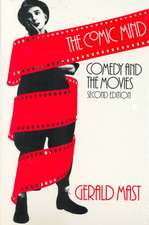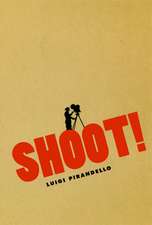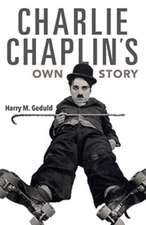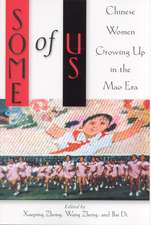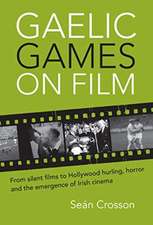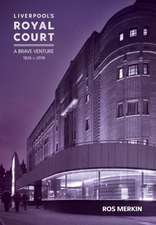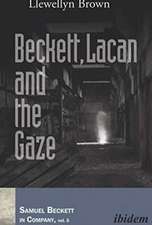An Amorous History of the Silver Screen: Shanghai Cinema, 1896-1937: Cinema and Modernity
Autor Zhang Zhenen Limba Engleză Paperback – feb 2006
Shanghai in the early twentieth century was alive with art and culture. With the proliferation of popular genres such as the martial arts film, the contest among various modernist filmmakers, and the advent of sound, Chinese cinema was transforming urban life. But with the Japanese invasion in 1937, all of this came to a screeching halt. Until recently, the political establishment has discouraged comprehensive studies of the cultural phenomenon of early Chinese film, and this momentous chapter in China's history has remained largely unexamined.
The first sustained historical study of the emergence of cinema in China, An Amorous History of the Silver Screen is a fascinating narrative that illustrates the immense cultural significance of film and its power as a vehicle for social change. Named after a major feature film on the making of Chinese cinema, only part of which survives, An Amorous History of the Silver Screen reveals the intricacies of this cultural movement and explores its connections to other art forms such as photography, architecture, drama, and literature. In light of original archival research, Zhang Zhen examines previously unstudied films and expands the important discussion of how they modeled modern social structures and gender roles in early twentieth-century China.
The first volume in the new and groundbreaking series Cinema and Modernity, An Amorous History of the Silver Screen is an innovative—and well illustrated—look at the cultural history of Chinese modernity through the lens of this seminal moment in Shanghai cinema.
The first sustained historical study of the emergence of cinema in China, An Amorous History of the Silver Screen is a fascinating narrative that illustrates the immense cultural significance of film and its power as a vehicle for social change. Named after a major feature film on the making of Chinese cinema, only part of which survives, An Amorous History of the Silver Screen reveals the intricacies of this cultural movement and explores its connections to other art forms such as photography, architecture, drama, and literature. In light of original archival research, Zhang Zhen examines previously unstudied films and expands the important discussion of how they modeled modern social structures and gender roles in early twentieth-century China.
The first volume in the new and groundbreaking series Cinema and Modernity, An Amorous History of the Silver Screen is an innovative—and well illustrated—look at the cultural history of Chinese modernity through the lens of this seminal moment in Shanghai cinema.
Preț: 394.52 lei
Nou
Puncte Express: 592
Preț estimativ în valută:
75.50€ • 77.100$ • 62.84£
75.50€ • 77.100$ • 62.84£
Carte tipărită la comandă
Livrare economică 25 martie-08 aprilie
Preluare comenzi: 021 569.72.76
Specificații
ISBN-13: 9780226982380
ISBN-10: 0226982386
Pagini: 456
Ilustrații: 95 halftones
Dimensiuni: 152 x 229 x 30 mm
Greutate: 0.65 kg
Editura: University of Chicago Press
Colecția University of Chicago Press
Seria Cinema and Modernity
ISBN-10: 0226982386
Pagini: 456
Ilustrații: 95 halftones
Dimensiuni: 152 x 229 x 30 mm
Greutate: 0.65 kg
Editura: University of Chicago Press
Colecția University of Chicago Press
Seria Cinema and Modernity
Notă biografică
Zhang Zhen is assistant professor of cinema studies at New York University.
Cuprins
List of Illustrations
Acknowledgments
Introduction
Part One - The Vernacular Scene
1. Vernacular Modernism and Cinematic Embodiment
2. Worldly Shanghai, Metropolitan Spectators
3. Teahouse, Shadowplay, and Laborer's Love
4. Building a Film World: Distraction versus Education
Part Two - Competing Moderns
5. Screenwriting, Trick Photography, and Melodramatic Retribution
6. The Anarchic Body Language of the Martial Arts Film
7. Fighting over the Modern Girl: Hard and Soft Films
8. Song at Midnight: Acoustic Horror and the Grotesque Face of History
Envoi
Abbreviations
Notes
Glossary
Filmography
Bibliography
Index
Acknowledgments
Introduction
Part One - The Vernacular Scene
1. Vernacular Modernism and Cinematic Embodiment
2. Worldly Shanghai, Metropolitan Spectators
3. Teahouse, Shadowplay, and Laborer's Love
4. Building a Film World: Distraction versus Education
Part Two - Competing Moderns
5. Screenwriting, Trick Photography, and Melodramatic Retribution
6. The Anarchic Body Language of the Martial Arts Film
7. Fighting over the Modern Girl: Hard and Soft Films
8. Song at Midnight: Acoustic Horror and the Grotesque Face of History
Envoi
Abbreviations
Notes
Glossary
Filmography
Bibliography
Index
Recenzii
"An Amorous History of the Silver Screen will be an instant classic. This lively yet rigorous work of original scholarship reconfigures the field of Chinese silent cinema. It constitutes an exciting new work at the cutting edge of the emergent transnational field of Chinese cinema studies."
"Splendid. This is a rich and comprehensive review of the early Chinese movie industry, most eloquently written by a scholar whose amorous attachment to the silver screen is just as deep as her academic commitment. It will become a primary source for anyone in the English-speaking world interested in Chinese cinematic history."
"Essential reading for anyone studying Chinese film history or early cinemas in general. . . . The richness of Zhang’s archival discoveries is admirable: her success in piecing together once-lost cinema culture from traces she has unearthed is astonishing. . . . Scholars and critics can now finally begin to grapple with the breathtaking sweep of a freshly exposed cultural landscape that this book opens before us.-"
"[Zhang] has written a history which will quickly become essential reading for those interested in Chinese cinema. . . . It is not so much an introductory survey, but rather a book whose value is its intensive analysis of key films, its detailed cultural geography of a city-based industry, and its use of previously untranslated material to open these films up to the cultural contexts and intellectual debates from which they sprang."
"Yhis book is indispensable for anyone interested in Chinese cinema and will certainly stand as a definitive book in the field. . . . Without question the most eloquently written, tightly argued, thoroughly researched, and richly detailed book on early Chinese cinema. The book incorporates the insight of two fields, namely, Chinese literary and cultural studies and early film studies, and remains open methodologically to anthropology, urban studies, and social theories of modernity. . . . It is a tour de force in both fields and makes a cogent case of how non-Western cinema and modernity shall remain the centre, not periphery, in the question of modernity."
